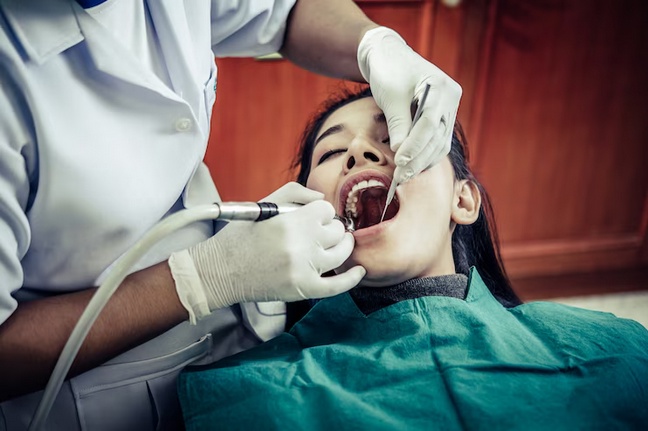Introduction:
Dental emergencies can be distressing and painful experiences, often requiring immediate attention to alleviate discomfort and prevent further complications. In such situations, the role of an emergency dentist is crucial. Emergency dentists are trained professionals equipped to handle a wide range of urgent dental issues, providing timely care and relief to patients in need. This article explores the significance of emergency dentists, common dental emergencies they address, and essential tips for managing such situations effectively.
Understanding the Importance of Emergency Dentists:
Emergency dentists play a vital role in providing prompt care for individuals facing urgent dental issues. Unlike routine dental appointments, emergencies require immediate attention to prevent exacerbation of symptoms and ensure optimal outcomes. Emergency dentists are trained to handle various emergencies, ranging from severe toothaches to traumatic injuries, with efficiency and expertise.
Common Dental Emergencies:
-
Toothaches: Severe toothaches can disrupt daily activities and indicate underlying dental problems such as tooth decay, infection, or injury. Emergency dentists assess the cause of the pain and provide appropriate treatment, which may include dental fillings, root canal therapy, or extraction, depending on the severity of the condition.
-
Traumatic Injuries: Accidents or injuries to the mouth, such as knocked-out teeth, fractured teeth, or soft tissue lacerations, require immediate dental intervention. Emergency dentists are trained in emergency dental procedures to address traumatic injuries effectively, restoring function and aesthetics to the affected area.
-
Dental Abscess: A dental abscess is a painful condition characterized by a pus-filled swelling around the tooth or gums, often resulting from bacterial infection. Left untreated, it can lead to severe complications, including the spread of infection to other parts of the body. Emergency dentists drain the abscess, prescribe antibiotics if necessary, and address the underlying cause to prevent recurrence.
-
Broken or Lost Dental Restorations: Broken or lost dental restorations, such as crowns, fillings, or bridges, can cause discomfort and compromise oral health. Emergency dentists offer temporary solutions to alleviate symptoms and restore the functionality of the affected teeth until permanent repairs can be made.
-
Dental Fractures: Fractured or cracked teeth can be painful and may expose the inner layers of the tooth to bacteria, increasing the risk of infection. Emergency dentists evaluate the extent of the fracture and recommend appropriate treatment, which may involve dental bonding, crowns, or veneers to restore the tooth's structure and integrity.
Tips for Managing Dental Emergencies:
-
Stay Calm: During a dental emergency, it's essential to stay calm and composed to assess the situation accurately and make informed decisions. Panicking can exacerbate the situation and hinder effective management.
-
Contact an Emergency Dentist: As soon as a dental emergency occurs, contact an emergency dentist or dental clinic for immediate assistance. Provide details of the emergency to help them prepare for your arrival and provide appropriate care.
-
Handle the Tooth Carefully: If a tooth is knocked out, handle it by the crown (top part) and avoid touching the root. Rinse the tooth gently with water if it's dirty, but do not scrub or remove any attached tissues. Keep the tooth moist by placing it in a container of milk or saliva until you can see the dentist.
-
Control Bleeding: In cases of oral bleeding due to trauma or injury, apply gentle pressure to the affected area using a clean gauze or cloth. Avoid excessive pressure, which can worsen the bleeding, and seek immediate dental attention.
-
Manage Pain: Over-the-counter pain medications can help alleviate discomfort temporarily until you can see an emergency dentist. Avoid placing aspirin directly on the gums, as it can cause chemical burns.
-
Protect the Mouth: If a broken tooth has sharp edges, cover them with dental wax or sugarless chewing gum to prevent injury to the tongue, cheeks, or lips. Avoid chewing on the affected side of the mouth to prevent further damage.
Conclusion:
In conclusion, emergency dentists play a crucial role in providing timely and effective care for individuals experiencing dental emergencies. Their expertise and training enable them to address a wide range of urgent dental issues, from severe toothaches to traumatic injuries, with efficiency and compassion. By understanding the importance of emergency dentists, recognizing common dental emergencies, and following essential tips for managing such situations, individuals can ensure prompt treatment and optimal outcomes in times of need. If you ever find yourself facing a dental emergency, remember to stay calm, contact an emergency dentist promptly, and follow their guidance for appropriate care and relief. Your oral health and well-being depend on it.


No comments yet